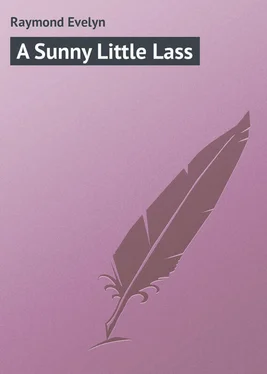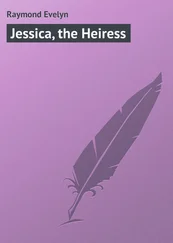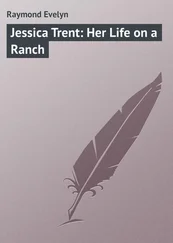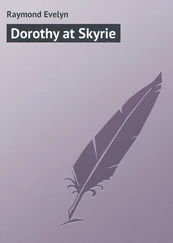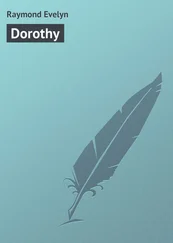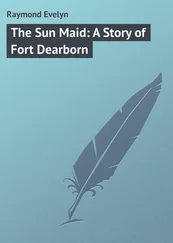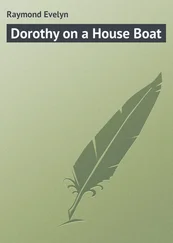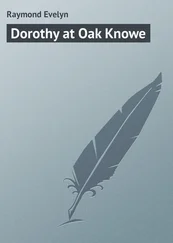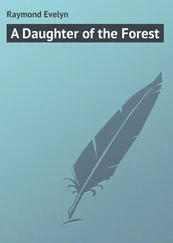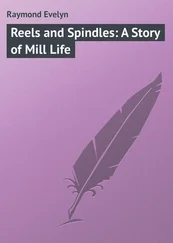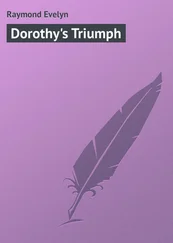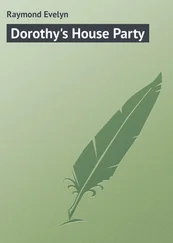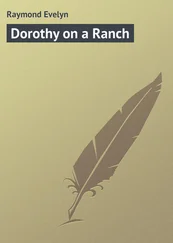Evelyn Raymond - A Sunny Little Lass
Здесь есть возможность читать онлайн «Evelyn Raymond - A Sunny Little Lass» — ознакомительный отрывок электронной книги совершенно бесплатно, а после прочтения отрывка купить полную версию. В некоторых случаях можно слушать аудио, скачать через торрент в формате fb2 и присутствует краткое содержание. Жанр: foreign_prose, foreign_children, на английском языке. Описание произведения, (предисловие) а так же отзывы посетителей доступны на портале библиотеки ЛибКат.
- Название:A Sunny Little Lass
- Автор:
- Жанр:
- Год:неизвестен
- ISBN:нет данных
- Рейтинг книги:5 / 5. Голосов: 1
-
Избранное:Добавить в избранное
- Отзывы:
-
Ваша оценка:
- 100
- 1
- 2
- 3
- 4
- 5
A Sunny Little Lass: краткое содержание, описание и аннотация
Предлагаем к чтению аннотацию, описание, краткое содержание или предисловие (зависит от того, что написал сам автор книги «A Sunny Little Lass»). Если вы не нашли необходимую информацию о книге — напишите в комментариях, мы постараемся отыскать её.
A Sunny Little Lass — читать онлайн ознакомительный отрывок
Ниже представлен текст книги, разбитый по страницам. Система сохранения места последней прочитанной страницы, позволяет с удобством читать онлайн бесплатно книгу «A Sunny Little Lass», без необходимости каждый раз заново искать на чём Вы остановились. Поставьте закладку, и сможете в любой момент перейти на страницу, на которой закончили чтение.
Интервал:
Закладка:
“Say, boys, ’tain’t nigh so bad. Ain’t more’n half of ’em busted. I guess the grocer-man’ll trust me to that many–he’s real good-natured to-day. His jumper’s tore, too, so maybe he’ll let me work it out.” Then, perceiving a peculiar action on the part of the too helpful Billy, she sternly demanded, “What you doin’ there, puttin’ in them shells that’s been all chewed?”
“Huh! That’s all right. I jams ’em down in the bottom. They don’t show an’ fills up faster’n th’ others. Gotter make yer losin’s good, hain’t yer?”
“Yes, Billy Buttons, I have, but I ain’t goin’ to make ’em cheatin’ anybody. What’d grandpa think or say to that? Now you can just empty out every single goober shell you’ve put in an’ fill up square. I’ll save them shells by theirselves, so’s to have ’em ready next time you yourself want to buy off me.”
The beautiful justice of this promise so impressed the newsboy that he turned a somersault, whereby more peanuts were crushed and he earned a fresh reproof.
Miss Bonnicastle had remained an amused observer of the whole scene, though the actors in it had apparently forgotten her presence. To remind them of this, she inquired, “Children, will you please tell me how much your peanuts were worth?”
“Cent a bag!” promptly returned Glory, selecting the best looking packet and holding it toward this possible customer.
“All of them, I mean. I wish to pay you for all of them,” explained the lady, opening her purse.
Too surprised to speak for herself, Nick answered for the vender, “They was fifty bags, that’s fifty cents, an’ five fer commish. If it’d been a hunderd, ’twould ha’ been a dime. Glory, she’s the best seller Toni Salvatore’s got, an’ he often chucks her in a bag fer herself, besides. Fifty-five’d be fair, eh, Take-a-Stitch?”
Glancing at Glory’s sunny face, Miss Laura did not wonder at the child’s success. Almost anybody would buy from her for the sake of bringing forth one of those flashing smiles, but the girl had now found her own voice and indignantly cried:
“Oh, parson, if you ain’t the cheat, I never! Chargin’ money for goobers what’s smashed! Think you’ll get a lot for yourself, don’t you? Well, you won’t an’ you needn’t look to, so there.”
Thus having rebuked her too zealous champion Glory explained to Miss Bonnicastle that “they couldn’t be more’n twenty-five good bags left. They belongs to Antonio Salvatore, the peanut man. I was goin’ to buy needles an’ thread with part, needin’ needles most, but no matter. Better luck next time. Do you really want a bag, lady?”
Again the tiny packet was extended persuasively, the small peddler being most anxious to make a sale although her honesty forbade her accepting payment for goods unsold.
But Miss Laura scarcely saw the paper bag, for she was looking with so much interest upon the child’s own face. Such a gay, helpful, hopeful small face it was! Beneath a tangle of yellow curls, the brown eyes looked forth so trustfully, and the wide mouth parted in almost continual laughter over white and well-kept teeth. Then the white carnation pinned to the faded, but clean, blue frock, gave a touch of daintiness. Altogether, this seemed a charming little person to be found in such a locality, where, commonly, the people were poor and ill-fed, and looked sad rather than glad. The lady’s surprise was expressed in her question, “Little girl, where do you live? How came you in this neighborhood?”
“Why–I belong here, ’course. Me an’ grandpa live in the littlest house in Ne’ York. Me an’ him we live together, all by our two selves, an’ we have the nicest times there is. But–but, did you want a bag?” she finished, pleadingly. Time was passing and she was too busy to waste more. She wondered, too, why anybody so rich as to ride in a carriage should tarry thus long in Elbow Lane, though, sometimes, people did get astray and turn into the Lane on their way to cross the big bridge.
“Yes, little Glory, as I heard them call you, I meant just what I said. I wish to buy all your stock as well as pay for a new basket. Will you please invite your friends to share the feast with you? I’m sorry I caused you so much trouble and here, the little boy suggested fifty-five cents, suppose we make it a dollar? Will that be wholly satisfactory?”
The face of Take-a-Stitch was again a study in its perplexity. The temptation to take the proffered money was great, but a sense of justice was even greater. After a pause, she said with complete decision, “It must be this way; you give me the fifty cents for Toni Salvatore–that’ll be hisn. You take the goobers an’ give ’em to who you want. I won’t take no pay for the basket, ’cause I can mend it again; nor for myself, ’cause I hain’t earned it. I hain’t hollered scarce any to sell such a lot. That’s fair. Will I put ’em in your carriage, lady?”
“No, no! Oh, dear! No, indeed. Call your mates and divide among them as you choose. Then–I wonder why my man doesn’t come back. The coachman can’t leave the horses, and the footman seems to have lost himself looking for a number it should be easy to find.”
The children had gathered about Glory who was now beaming with delight at the chance to bestow a treat upon her mates as well as enjoy one herself. Indeed, her hunger made her begin to crack the goobers with her strong white teeth and to swallow the kernels, skins and all. But again Miss Bonnicastle touched her shoulder, though this time most gently, asking:
“If this is Elbow Lane, and you live in or near it, can you show me the way to the house of Captain Simon Beck, an old blind man?”
Glory gasped and dropped her basket. All the rosy color forsook her face and fear usurped its gaiety. For a time, she stared at the handsome old lady in terror, then demanded, brokenly, “Be–you–from–‘Snug Harbor’?”
It was now the stranger’s turn to stare. Wondering why the child had asked such a question and seemed so startled, she answered, “In a way, both yes and no. I am interested in ‘Snug Harbor,’ and have come to find an old, blind sea captain whom my brother employed, in order to take him, myself, to that comfortable home. Why do you ask?”
Then Glory fled, but she turned once to shake a warning fist toward Nick and Billy, who instantly understood her silent message and glared defiantly upon the lady who had just given them an unexpected feast.
CHAPTER IV
Beside Old Trinity
“Why, what is the matter? Why did she run away?” asked the astonished stranger.
Billy giggled and punched Nick who was now apportioning the peanuts among the children he had whistled to his side, but neither lad replied.
This vexed Miss Bonnicastle who had come to the Lane in small hope of influencing the old captain to do as her brother had wished him to do and to remove, at once, to the comfortable “Harbor” across the bay. She had undertaken the task at her brother’s request; and also at his desire, had driven thither in the carriage, in order to carry the blind man away with her, without the difficulty of getting him in and out of street cars and ferry boat. It would greatly simplify matters if he would just step into the vehicle at his own humble door and step out of it again at the entrance to his new home.
But the Lane had proved even narrower and dirtier than she had expected. She was afraid that having once driven into it the coachman would not be able to drive out again, and the odors of river and market, which the blind seaman found so delightful, made her ill. She had deprived herself of her accustomed afternoon nap; she had sprained her ankle in falling; her footman had been gone much longer than she expected, searching for the captain’s house; and though she had been amused by the little scene among the alley children which had been abruptly ended by Glory’s flight, she was now extremely anxious to finish her errand and be gone.
Читать дальшеИнтервал:
Закладка:
Похожие книги на «A Sunny Little Lass»
Представляем Вашему вниманию похожие книги на «A Sunny Little Lass» списком для выбора. Мы отобрали схожую по названию и смыслу литературу в надежде предоставить читателям больше вариантов отыскать новые, интересные, ещё непрочитанные произведения.
Обсуждение, отзывы о книге «A Sunny Little Lass» и просто собственные мнения читателей. Оставьте ваши комментарии, напишите, что Вы думаете о произведении, его смысле или главных героях. Укажите что конкретно понравилось, а что нет, и почему Вы так считаете.
